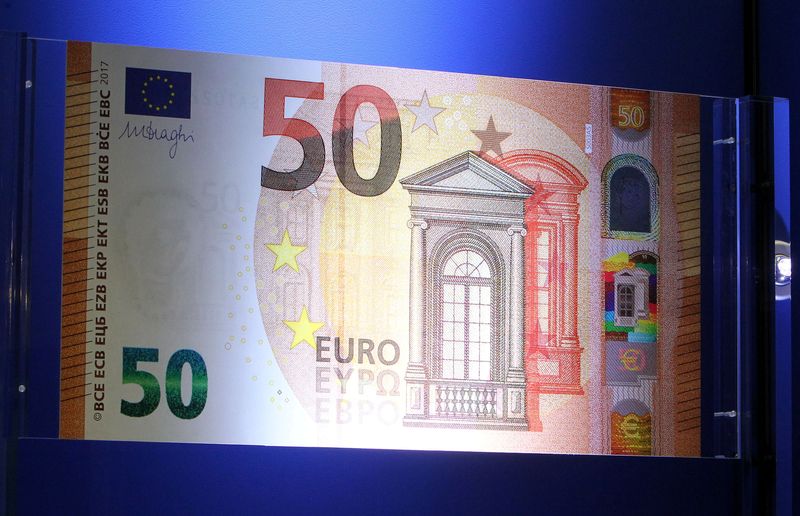By Dhara Ranasinghe
LONDON (Reuters) - Euro zone government bond yields rose back towards recent multi-year highs before easing down again on Monday, after European Central Bank policymaker Francois Villeroy de Galhau said a weak euro threatened price stability in the currency bloc.
The euro's weakness on currency markets could threaten the ECB's efforts to steer inflation towards its target, Villeroy said.
The euro has tumbled almost 9% since February and fell to its lowest levels since 2017 last week, a move that accelerated upward pressure on inflation in the euro area, which is already running at a record high 7.5%.
Villeroy's comments injected fresh volatility into bond markets that rebounded in price last week as growing concerns about the global growth outlook prompted investors to reassess the prospects for battered sovereign debt.
Germany's 10-year Bund yield rose as much as 6.7 basis points (bps) to just over 1%, reversing earlier falls. It later pared the gains and by 1444 GMT it was flat on the day at 0.947%, weighed down as U.S. Treasury yields slid on growing growth worries. [US/]
Bund yields hit roughly eight-year highs earlier this month above 1%, but they fell to as low as 0.85% last week.
Italian 10-year bond yields also saw a volatile session. They were last up 1.5 bps to 2.861%, driving the gap over safer German Bunds to 190 bps, versus 189 bps late on Friday.
Rabobank senior bonds strategist Lyn Graham-Taylor linked the move higher in euro zone bonds to Villeroy's comments. "This explains why spreads are widening also," he said.
Money markets also reacted as investors again ratcheted up rate-hike bets, with roughly 95 bps worth of ECB rate hikes priced in by year-end. That's up from roughly 80 bps on Friday and would be the equivalent of the ECB delivering more than three, 25-bps interest rate hikes.
The ECB last hiked rates in 2011 and its depo rate is at -0.50%.
At the weekend, ECB policymaker Pablo Hernandez de Cos said the ECB would likely decide at its next meeting to end its stimulus programme in July and raise rates "very soon" after that.
"We had a strong correction in bonds last week with inflation worries moving to the background and recession worries helping lower rates from high levels," DZ rates strategist Christian Lenk said.
"But this was more of a short-term reaction, the trend is still to the upside (for yields) and markets are still worried about the prospects of a rate hike in July."
Money market pricing suggests investors are positioned for a 25-bps rate hike at the ECB's July meeting.

Elsewhere, a key gauge of long-term euro area inflation expectations rose to 2.231%. It fell to its lowest levels since March last week.
(Graphic: Bund yield back at 1%, https://fingfx.thomsonreuters.com/gfx/mkt/lgpdwemkbvo/Bund1605.png)